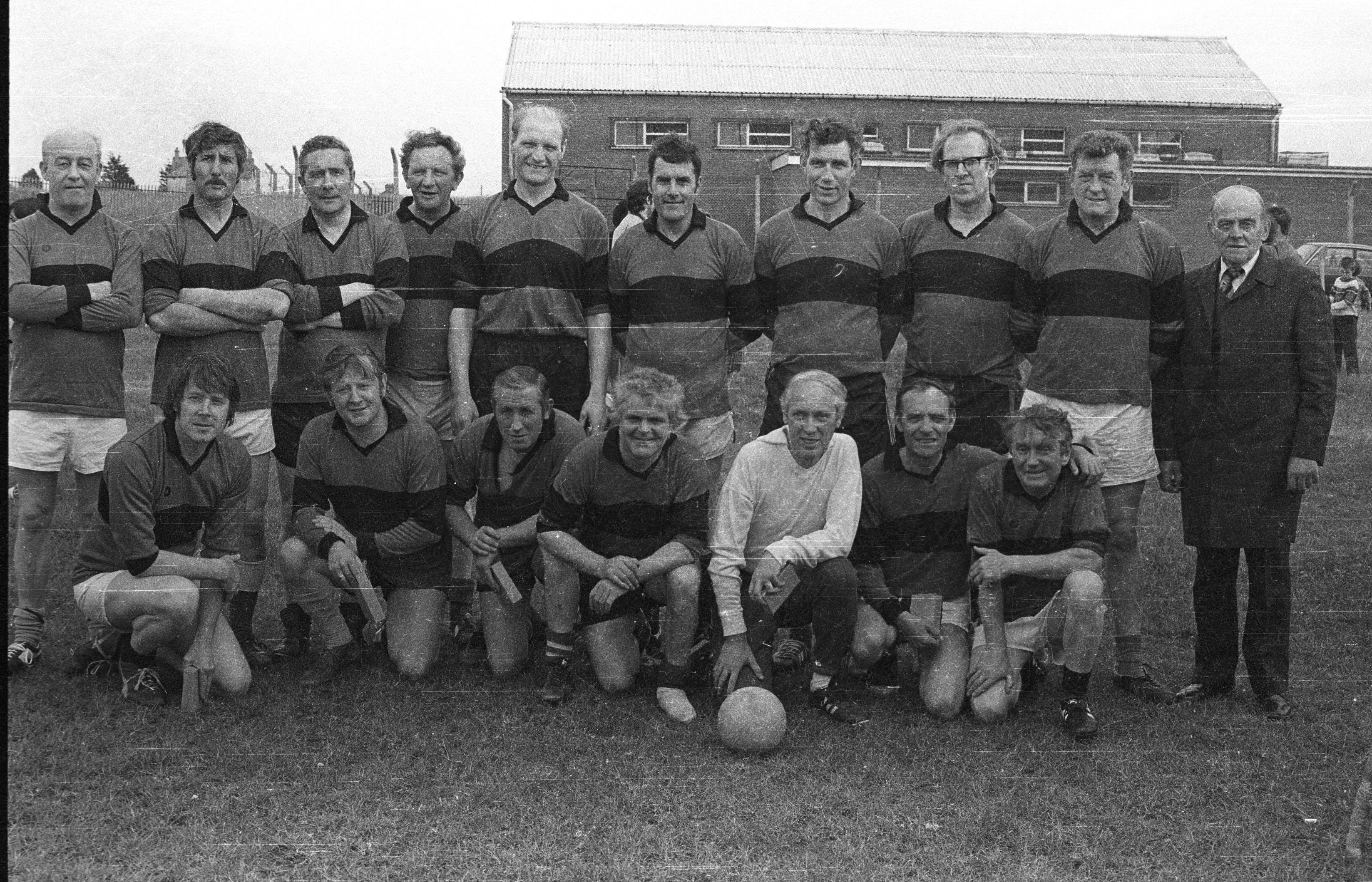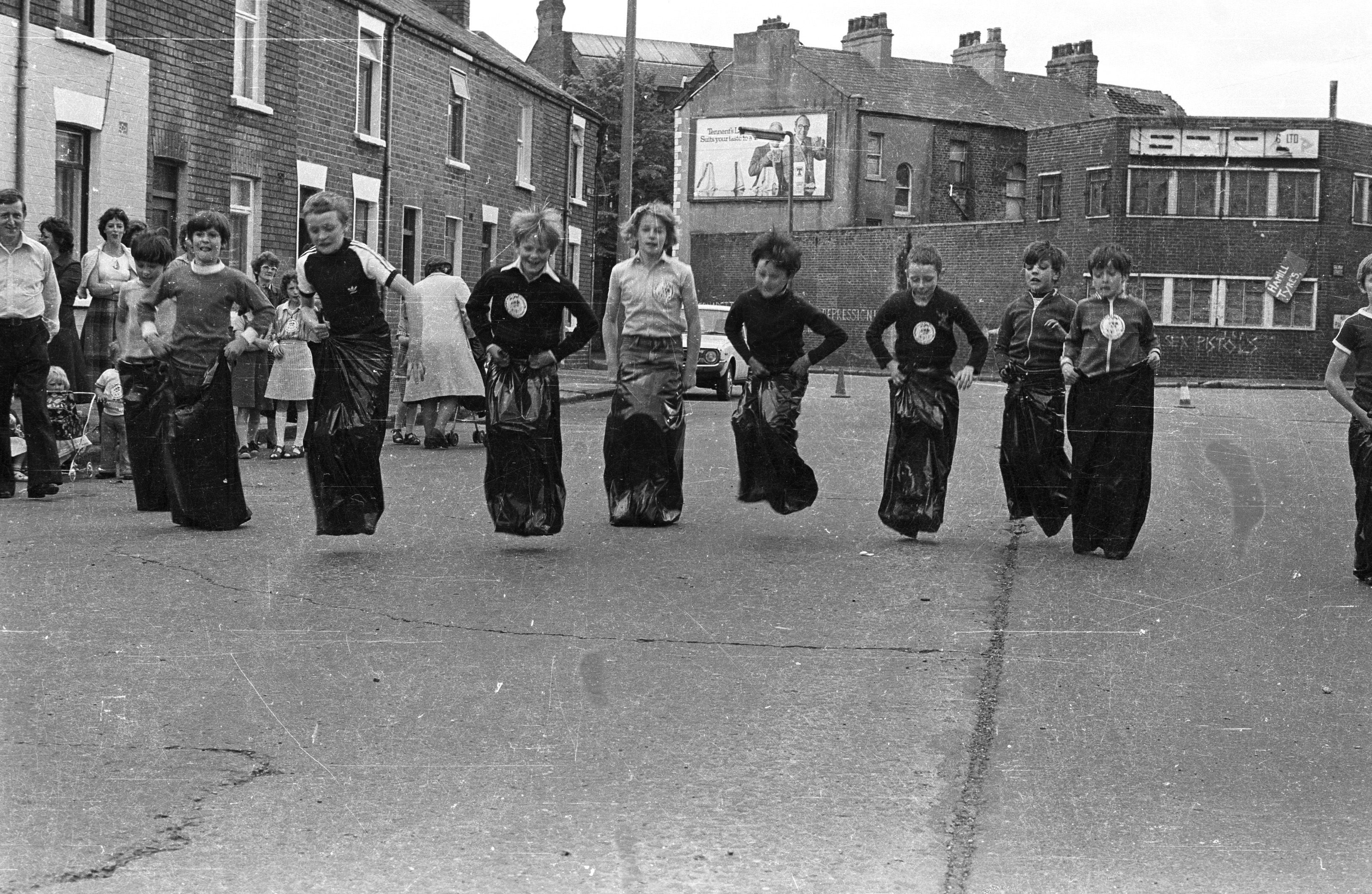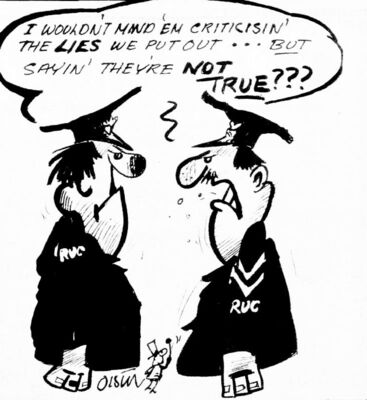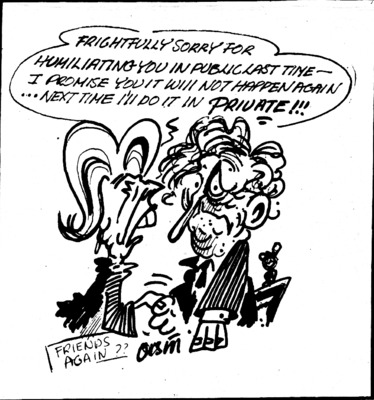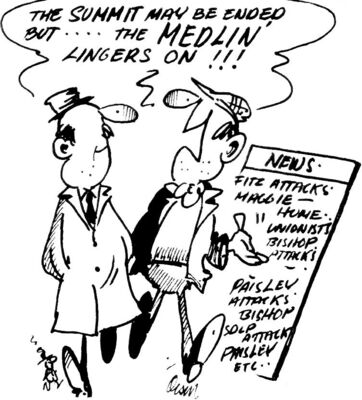We look back at the stories that were making the headlines in the Andersonstown News this week in 1979
H-Block protest greets former minister Lord Melchett at the opening of Andersonstown Leisure Centre 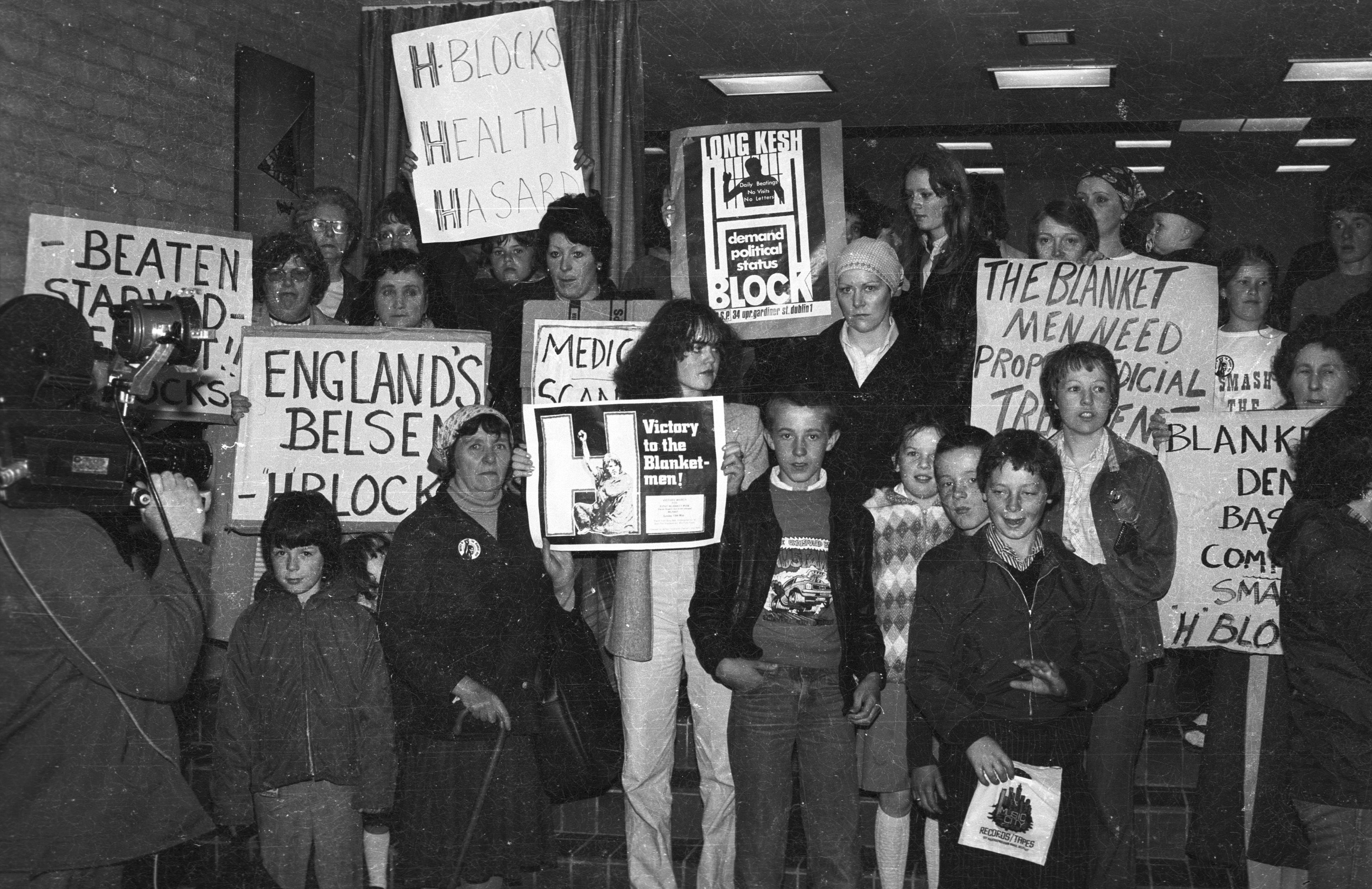
Pope must come North
Ballymurphy priest Fr Des Wilson has entered the Pope-Paisley controversy with a strong plea to the Pope to visit this side of the border.
The outspoken Father Wilson has long been a critic of the Catholic clergies’ reluctance to give effective leadership and encouragement to the embattled Catholics in the Six Counties.
“For the first time, father Wilson says, “There would be an open confrontation between the Pope and Evangelical Protestantism and it would be extremely important that Evangelical Protestantism would not win.
“The Catholic clergy should take an active role in this confrontation and should not shy away from this opportunity to expose the insults and taunts that have been heaped upon the Catholics by the Paisley brand of Protestantism.
“The massive 43 per cent vote given to Paisley at the European Election makes him the undisputed spokesman for the majority of Protestants. This makes it all the more important that the Catholic clergy stand up and be counted, not only on their own behalf but on behalf of that minority of Northern Protestants who are in danger of being swamped by the Paisley colossus.
“The Catholics of the North badly need a morale boost to pull them together. They have been cajoled and intimidated by the State and members of their Church and politicians into accepting an inferior ‘minority’ status which has left them exhausted and lethargic.
“The Pope’s visit here and the enthusiasm and expectancy it would engender, could quite well be the thing that would make them abandon this ‘minority’ mentality, and spur them on to new endeavours. A stand has to be made against Paisleyism in all its forms, and since the Catholics are the main targets of its wrath, they must make that stand or suffer the consequences.”
St Finian’s P6 won the Belfast Primary Schools Gaelic Football Championship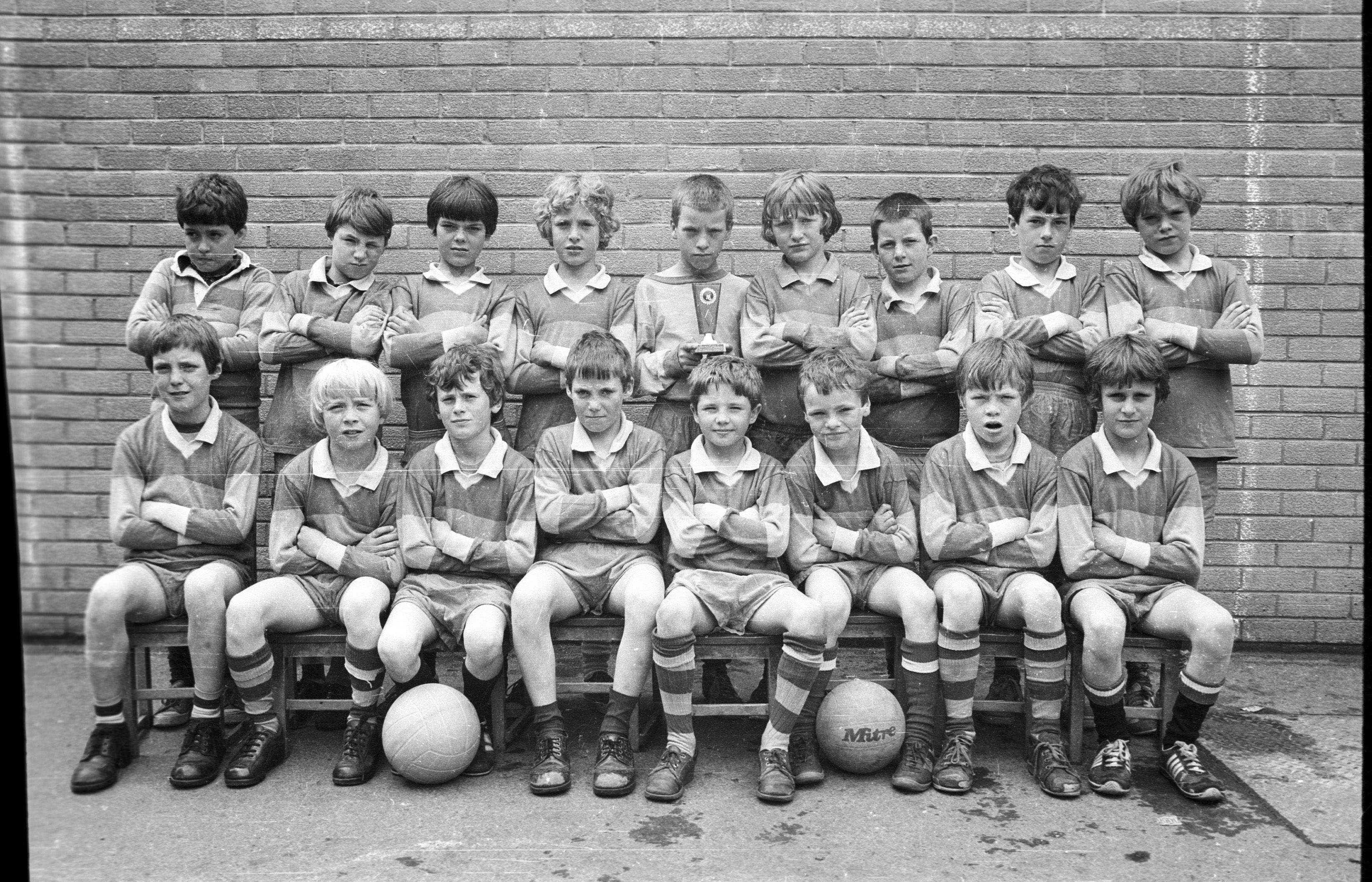
Editorial
IF the Pope comes to Ireland he has to visit the North – there are no two ways about it.
Irish Christianity began in Ulster: Slemish, Saul and particularly Armagh are important historically in the story of the Irish Church and, as Armagh is still today the See of Patrick and the home of the Irish Cardinal, the Pontiff can’t avoid going there.
There is also a very strong case to be made for his coming to Belfast. This is Ireland’s second city – there are 200,000 Catholics here and many more thousands in the immediate surrounding areas. The Pope’s Polish visit took him to other cities besides Warsaw, and we in Belfast expect the same treatment.
There is another reason for a northern visit. This part of Ireland, annexed by Britain, is the most anti-Catholic area in the world, despite the fact that almost half its people, and more than half of its land area, is Catholic. Protestant Unionism represented by Paisley and people like him, insult Catholics and Catholicism day and daily. The very existence of their state and institutions is a crime and an insult to the great majority of Irish people.
And a decision not to include Armagh, at least, in the Pope’s itinerary would be to compound the crime and heighten the insult. It would show that Paisley and those people do rule here and that their contemptuous view of Ireland’s Catholics is the proper view and the view to be held internationally.
If the Pope doesn’t come north, a Northern Catholic can be excused if he looks back at the hundreds of burning houses, at the thousands of homeless, at the years of discrimination and insult, at the headless corpses – and if he asks himself ‘What’s the use?’
It has been stressed that the Pope’s visit will be non-political; and we don’t expect him to take any side in the war being waged on Irish Nationalists by Britain and the Unionists. However, it is hoped that he won’t, as suggested by a Vatican source, quoted in a Dublin Sunday newspaper, ‘appeal to both religions in the Irish conflict to stop fighting.’
One final question: the main Protestant churches say that they will welcome the Pope’s visit; and they attack Paisley for his proposed campaign. Will they organise a counter-campaign to prove what they continually declare – that Paisley doesn’t speak for the North’s Protestants?
St Finian’s PS winners of West Belfast Swimming Gala, Falls Baths, with teacher Mr McDonald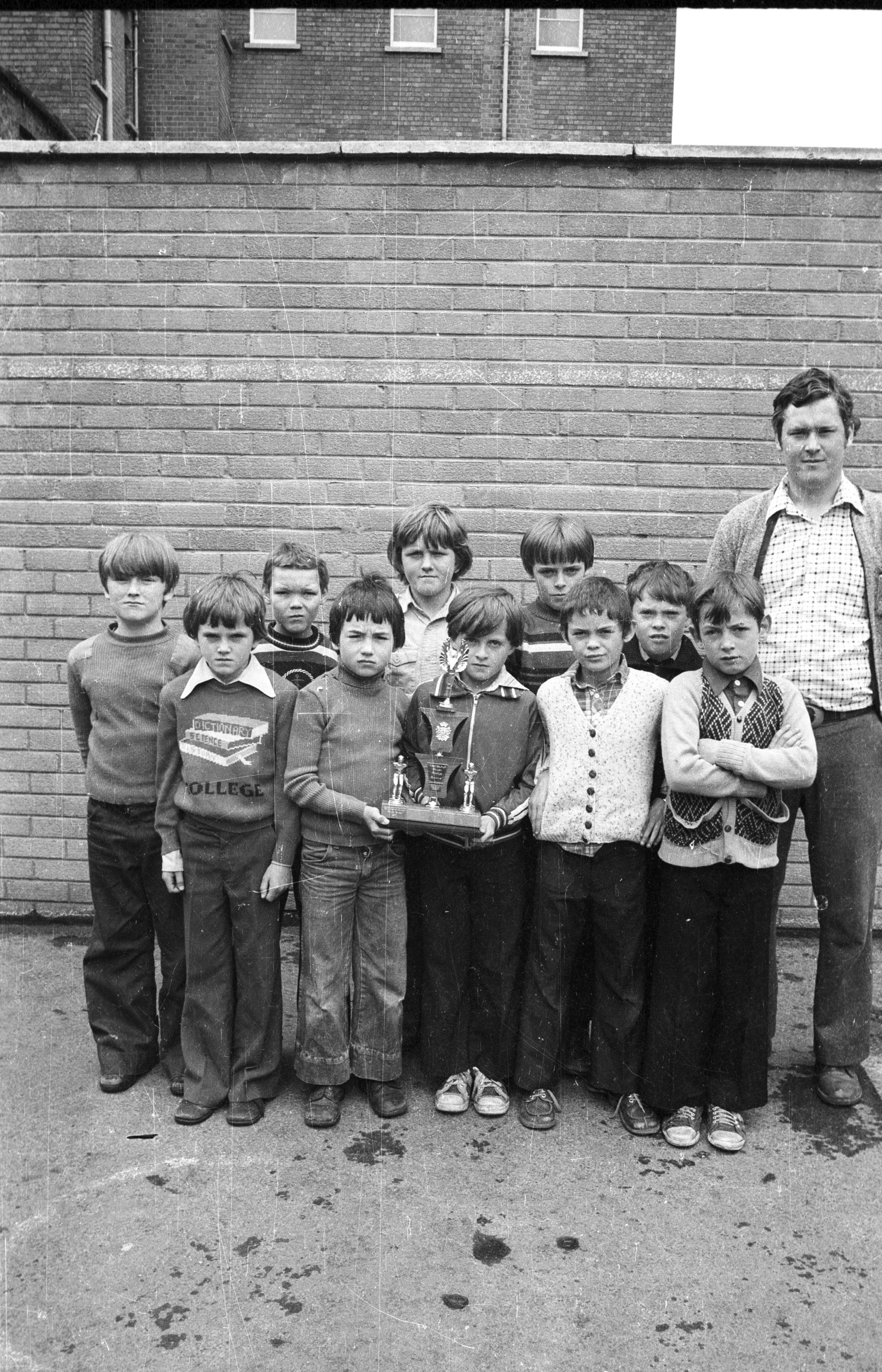
Film to be shown in Turf Lodge
THE Irish premiere of the film ‘The Patriot Game’ takes place next Monday night, July 30, in Martin Forsythe Club, Monagh Road 9pm.
The film comes to Ireland after having been shown in Florence, Rotterdam, Paris and at the Royal Court Theatre, London. It lasts for one hour and 33 minutes and is in black and white. Admission to the premiere is 50p.
The Patriot Game is issued by the Other Cinema, London, who say: “The Patriot Game is the first feature length documentary of a young American film maker Arthur MacCaig. It succeeds as no other film has in capturing the spirit of the nationalist ghettoes in the north of Ireland and showing that the struggle here is the expression of popular resistance to British oppression.
"People who knew little about Ireland before seeing the film have been profoundly shocked by it and forced to rethink their attitudes.
“We see Turf Lodge women protesting against the army’s presence, army patrols at work in nationalist areas, the Belfast people’s taxi service, the Republican Press Centre, and a fine scene in a Belfast social club showing the response when an army patrol comes in (the band strikes up ‘I drove my saracen through your garden last night’ to the tune of Melanie’s ‘I’ve got a brand new pair of rollerskates’).
Historical footage provides the context for this contemporary material. The events of the past ten years – the civil rights movement, loyalist pogroms, the Battle of the Bogside and the intervention of the British army, internment, Bloody Sunday, the Peace People, the IRA’s bombing campaign, the Queen’s visit – are seen as the latest phase in Britain’s centuries-old occupation of Ireland.
‘Old crocks’ at Sarsfields GAC back in July 1979